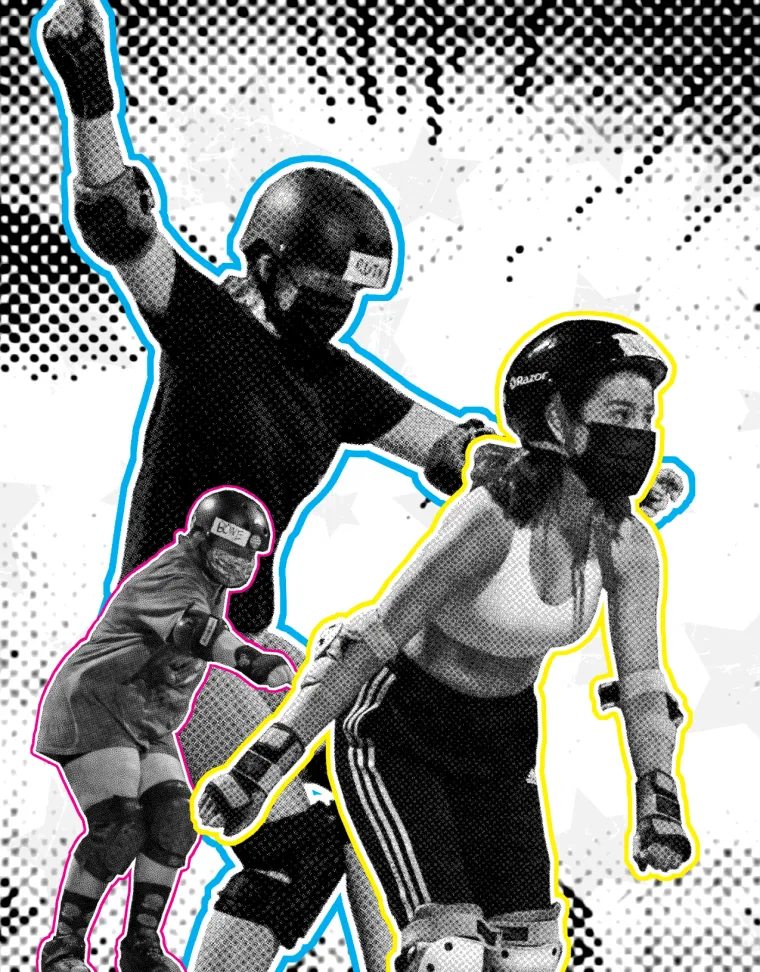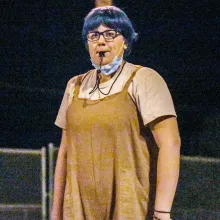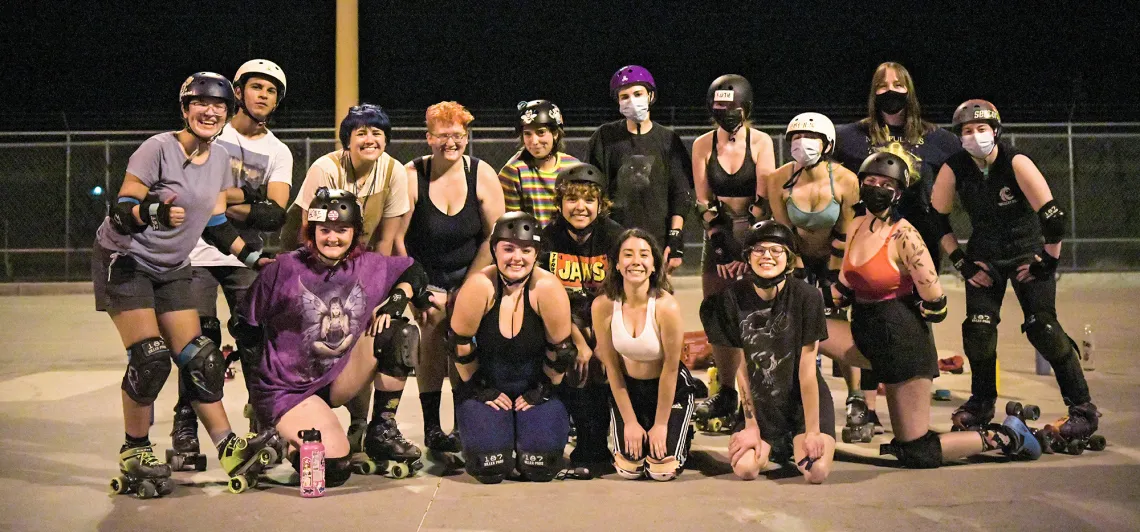Jamming with the Derby Cats
Roller derby provides students with community, camaraderie and perspective.

/ Cory Aaland illustration
After two hours of body checking, falling on concrete and skating fast circles, the Derby Cats huddle up under the rink’s yellow stadium lights. They stretch to cool down and share updates about their lives with one another. Many share that team practices are the highlight of their week.
For all of roller derby’s tough image and physical play, the atmosphere among the players on the University of Arizona team is one of complete support, acceptance and encouragement.
“It’s a sport where I feel extremely welcome … a really supportive, communal spirit,” shares Yesenia “Hot Soup” Siemens, a biology major. “If you fall, people don’t make fun of you, they cheer you on. You can hit someone so hard that they wipe out, and they’ll congratulate you for hitting them that hard.”
Roller derby is a fast-paced, full-contact sport played on quad roller skates. Despite the jostling, shouldering and falls, roller derby rules and penalties dictate how players use their bodies in the game.
“We don’t punch each other, for instance,” says Meg “Bone Rivers” Walter, a sociology major. “People are responsible and are learning what their bodies can do.”
The Derby Cats, established in 2012, was the first collegiate flat track roller derby team in the U.S., says club president Olivia “Badknee McGee” Jones, an astronomy major.

Club president Olivia Jones officiates a scrimmage.
/ Cory Aaland photo
The coronavirus pandemic halted practices in 2020. During the break in play, many veteran skaters graduated, leaving the team to rebuild from the ground up when practice resumed in fall 2021. They anticipate resuming matches against Tucson community teams in the upcoming academic year.
Jones has been involved with the club since 2017 but is sidelined due to a knee injury. Off skates, she officiates and helps games and practices run smoothly by keeping track of time and scores. During practice, as the team begins footwork drills in their skates — walking in grapevines and weaving between cones — Jones opens boxes of new gear for the players, purchased with club funds from the Associated Students of the University of Arizona. While Jones provides direction and coaching, the team largely uses a communal style of learning, with more experienced players teaching the new members.
Many of the players praise practice as a time to release from the stresses of student life. For Siemens, biology is a rigorous major, and her days are filled with classwork and studying. “At derby practice, I get to let my instincts take over. I get to go fast, have fun and blow off steam,” she says.
“In class, I have to sit down and be quiet and focused. Here I can be all over the place, I can ram into people, I can be myself. It’s a little bit of freedom.”
“I struggle with mental health issues, and coming here sometimes makes my week better,” Walter says. “This is such a fun way to exercise, because you’re communicating with people the whole time. It doesn’t feel like you’re doing work; it’s just fun. It’s good for the psyche, it’s good for your heart, it’s good for your brain.”

The Derby Cats pose together after a long practice.
/ Cory Aaland photo
Alexandra “Killer Bee” McWilliams, a psychology major, says staying active helps her stay focused in school. “There’s a lot of failure in skating. A lot of falling down and getting back up, a lot of bruises and scrapes. But any time you’re on skates, you’re gaining a little bit of experience,” she says. “That perspective helps me in other aspects of my life. I know I can accomplish things; I can do it, I can get back up.”
The inclusive, empowering and body-positive nature of the sport is what many of the players love most about it.
“You don’t have to have a certain body type to do derby,” Walter says. “We have people of all sizes here, and we need everybody.”
“Different body types can be more useful for different positions, like being a blocker or a jammer,” Jones explains. “Or if you’re someone like me, who can’t skate because of an injury, you can also officiate and teach people.”
“Derby is a source of strength and capability for women,” McWilliams adds. “If you’re stocky and solid or if you’re really small, it’s a matter of figuring out how to use your body. People gain a lot of confidence through it.”
